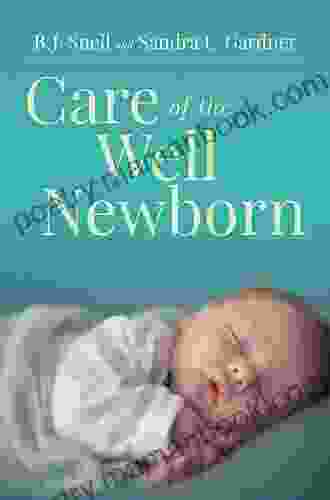Caring for the Well Newborn: A Comprehensive Guide for Parents and Caregivers

Welcoming a newborn into the world is a momentous occasion filled with joy, love, and responsibility. Parents and caregivers have the privilege of providing the best possible care for their little one, ensuring their health and well-being. Understanding the specific needs of a well newborn is essential for creating a nurturing and supportive environment that promotes growth and development. This article will provide a comprehensive guide to caring for the well newborn, covering essential aspects such as feeding, bathing, diaper changing, sleep, and health monitoring.
Breast milk is considered the optimal nutrition for newborns. It contains a perfect balance of nutrients, antibodies, and growth factors essential for a baby's development. Breastfeeding provides numerous benefits, including reducing the risk of allergies, infections, and childhood obesity. It also promotes a strong bond between mother and child.
Positioning: Position the baby tummy-to-tummy against your chest, with their mouth level with your nipple. Support their head and neck gently, ensuring they are able to open their mouth wide.
4.7 out of 5
| Language | : | English |
| File size | : | 6037 KB |
| Text-to-Speech | : | Enabled |
| Screen Reader | : | Supported |
| Enhanced typesetting | : | Enabled |
| Print length | : | 395 pages |
Latch: Gently brush the nipple against the baby's lips and wait for them to open their mouth. Once their mouth is open wide, gently guide the nipple and areola into their mouth. The baby should have a deep latch, with the majority of the areola in their mouth.
Frequency: Newborns typically nurse frequently, 8-12 times per day. Follow the baby's cues, nursing them whenever they show signs of hunger, such as rooting, sucking on their hands, or fussing.
For babies unable to breastfeed, bottle-feeding provides a safe and effective alternative. Choose a formula designed specifically for newborns, and follow the instructions on the package for preparation.
Positioning: Hold the baby in a semi-upright position, supporting their head and neck. Tilt the bottle slightly so that the nipple is filled with milk.
Nipple: Use a nipple designed for newborns, with a slow flow rate to prevent choking.
Frequency: Bottle-fed babies typically need to be fed every 2-3 hours, or as recommended by a healthcare professional.
Newborns do not require frequent baths. In the early days, sponge baths are preferred to minimize heat loss.
Sponge Baths:
- Gather supplies: Warm water, washcloths, mild soap (optional),and a soft towel.
- Prepare the baby: Undress the baby and place them on a soft surface, such as a changing table or towel.
- Wet the washcloth: Dip a washcloth in warm water and gently wipe the baby's face and eyes.
- Apply soap (optional): Use a mild, fragrance-free soap to gently cleanse the baby's skin. Avoid using soap on the face, eyes, and umbilical cord area.
- Rinse: Use a clean, warm washcloth to rinse off the soap and any remaining dirt.
- Dry the baby: Pat the baby dry with a soft towel, paying special attention to creases and skin folds.
- Dress the baby: Put on a clean diaper and clothes.
Tub Baths:
Once the umbilical cord falls off, tub baths can be given. Follow the same steps as for sponge baths, but instead of using washcloths, gently lower the baby into warm water. Support the baby's head and neck, and use a soap-free wash or a mild, baby-specific soap if desired. Rinse thoroughly and pat dry with a soft towel.
Diapers need to be changed frequently to keep the baby's skin clean and prevent diaper rash.
- Gather supplies: Diaper, wipes, diaper cream (optional),wet washcloth (optional).
- Clean the diaper area: Gently wipe the baby's bottom from front to back with wipes or a wet washcloth. If using wipes, avoid using scented or alcohol-based ones.
- Apply diaper cream (optional): If the baby is prone to diaper rash, apply a thin layer of diaper cream to the diaper area.
- Put on a clean diaper: Slide a clean diaper under the baby's bottom and bring the front and back edges up. Adjust the tabs to ensure a snug but not too tight fit.
- Dispose of the dirty diaper: Wrap the dirty diaper in a plastic bag and dispose of it in a trash can.
Newborns sleep a lot, typically around 14-17 hours per day. They have short sleep cycles and wake frequently to feed or have their diaper changed.
Safe Sleep Environment:
- Sleep position: Always place the baby on their back to sleep, as this reduces the risk of Sudden Infant Death Syndrome (SIDS).
- Firm mattress: Use a firm, flat mattress in a crib or bassinet that meets current safety standards.
- No loose bedding: Avoid using pillows, blankets, stuffed animals, or other loose bedding in the baby's sleep area.
- Room temperature: Maintain a comfortable room temperature of around 70 degrees Fahrenheit (21 degrees Celsius).
- White noise: White noise, such as a fan or white noise machine, can help to block out other sounds and create a calming environment for the baby.
Monitoring your baby's health is crucial for early detection of any potential issues.
Temperature: Check your baby's temperature regularly, especially if they seem sick. Normal temperature range for newborns is 97.6-100.4 degrees Fahrenheit (36.4-38 degrees Celsius).
Jaundice: Jaundice, a yellowing of the skin and whites of the eyes, is common in newborns. Mild jaundice usually resolves on its own, but excessive jaundice may require medical attention.
Weight loss: Most newborns lose weight in the first few days after birth, but they should regain it by day 10-14. If the baby is not gaining weight or loses more than 10% of their birth weight, consult a healthcare professional.
Umbilical Cord: Keep the umbilical cord dry and clean. It should fall off naturally within 1-3 weeks. If it becomes red, swollen, or foul-smelling, seek medical attention.
Feeding Cues: Observe your baby for feeding cues, such as rooting, sucking on their hands, or making noise. Feeding on demand, rather than on a strict schedule, ensures that the baby is getting enough nourishment.
While most newborns are healthy, it's important to know when to seek medical attention.
- Fever of 100.4 degrees Fahrenheit (38 degrees Celsius) or higher
- Consistent vomiting or diarrhea
- Refusal to feed or difficulty latching
- Lethargy or irritability that does not resolve
- Jaundice that worsens or does not resolve after 2 weeks
- Umbilical cord that becomes red, swollen, or foul-smelling
- Skin rash or other unusual skin changes
- Difficulty breathing or wheezing
Caring for a well newborn is a rewarding experience that requires knowledge, patience, and love. By following these guidelines, parents and caregivers can ensure the best possible health and well-being for their precious little ones. Remember to trust your instincts and don't hesitate to consult a healthcare professional if you have any concerns or questions. The journey of caring for a newborn is filled with challenges, but it is also an unforgettable time of bonding and pure joy.
4.7 out of 5
| Language | : | English |
| File size | : | 6037 KB |
| Text-to-Speech | : | Enabled |
| Screen Reader | : | Supported |
| Enhanced typesetting | : | Enabled |
| Print length | : | 395 pages |
Do you want to contribute by writing guest posts on this blog?
Please contact us and send us a resume of previous articles that you have written.
 Top Book
Top Book Novel
Novel Fiction
Fiction Nonfiction
Nonfiction Literature
Literature Paperback
Paperback Hardcover
Hardcover E-book
E-book Audiobook
Audiobook Bestseller
Bestseller Classic
Classic Mystery
Mystery Thriller
Thriller Romance
Romance Fantasy
Fantasy Science Fiction
Science Fiction Biography
Biography Memoir
Memoir Autobiography
Autobiography Poetry
Poetry Drama
Drama Historical Fiction
Historical Fiction Self-help
Self-help Young Adult
Young Adult Childrens Books
Childrens Books Graphic Novel
Graphic Novel Anthology
Anthology Series
Series Encyclopedia
Encyclopedia Reference
Reference Guidebook
Guidebook Textbook
Textbook Workbook
Workbook Journal
Journal Diary
Diary Manuscript
Manuscript Folio
Folio Pulp Fiction
Pulp Fiction Short Stories
Short Stories Fairy Tales
Fairy Tales Fables
Fables Mythology
Mythology Philosophy
Philosophy Religion
Religion Spirituality
Spirituality Essays
Essays Critique
Critique Commentary
Commentary Glossary
Glossary Bibliography
Bibliography Index
Index Table of Contents
Table of Contents Preface
Preface Introduction
Introduction Foreword
Foreword Afterword
Afterword Appendices
Appendices Annotations
Annotations Footnotes
Footnotes Epilogue
Epilogue Prologue
Prologue 1st Edition Kindle Edition
1st Edition Kindle Edition Paula Jacobsen
Paula Jacobsen Azar Nafisi
Azar Nafisi Georgina Herrera
Georgina Herrera Eva Chance
Eva Chance Leo Fontanarosa
Leo Fontanarosa Londyn Michaele
Londyn Michaele Emma Savant
Emma Savant Steffen Wittenbecher
Steffen Wittenbecher Neil Astley
Neil Astley Viki Winterton
Viki Winterton Pamela Brookes
Pamela Brookes Caroline Dunford
Caroline Dunford Keith Dinnie
Keith Dinnie Rk Munin
Rk Munin Brandy Fortune
Brandy Fortune Bronwyn Leroux
Bronwyn Leroux Douglas P Mccormick
Douglas P Mccormick Wade Bourne
Wade Bourne Abdullah Mamun
Abdullah Mamun
Light bulbAdvertise smarter! Our strategic ad space ensures maximum exposure. Reserve your spot today!

 Howard PowellAll the Love Healing Your Heart: A Journey of Self-Discovery and Emotional...
Howard PowellAll the Love Healing Your Heart: A Journey of Self-Discovery and Emotional...
 Robert Louis StevensonThe Girl with the Amber Comb: A Tale of Love, Loss, and the Search for...
Robert Louis StevensonThe Girl with the Amber Comb: A Tale of Love, Loss, and the Search for...
 Andrew BellUnveiling the Wisdom of Ancient India: Exploring 21 Translated Sanskrit Tales...
Andrew BellUnveiling the Wisdom of Ancient India: Exploring 21 Translated Sanskrit Tales... Forrest ReedFollow ·7.1k
Forrest ReedFollow ·7.1k Gavin MitchellFollow ·16.9k
Gavin MitchellFollow ·16.9k Curtis StewartFollow ·6.1k
Curtis StewartFollow ·6.1k Logan CoxFollow ·11k
Logan CoxFollow ·11k Ricky BellFollow ·5.7k
Ricky BellFollow ·5.7k Jesse BellFollow ·15.8k
Jesse BellFollow ·15.8k Cortez ReedFollow ·9.9k
Cortez ReedFollow ·9.9k Gregory WoodsFollow ·15.5k
Gregory WoodsFollow ·15.5k

 Patrick Hayes
Patrick HayesDeath on Stage: Euphemia Martins Mystery 16
Synopsis In the...

 Benji Powell
Benji Powell1001 Best Baking Recipes Of All Time
Baking is a fun and...

 Terry Bell
Terry BellDestined War of the Covens: A Supernatural Saga of Power,...
Welcome to the...

 Mark Twain
Mark TwainBitcoin For Mere Mortals: A Comprehensive Guide for...
Bitcoin is a...

 Dennis Hayes
Dennis HayesThe Best Budget Gaming PC 2024: Build the Ultimate Gaming...
Are you looking to build the best budget...
4.7 out of 5
| Language | : | English |
| File size | : | 6037 KB |
| Text-to-Speech | : | Enabled |
| Screen Reader | : | Supported |
| Enhanced typesetting | : | Enabled |
| Print length | : | 395 pages |








